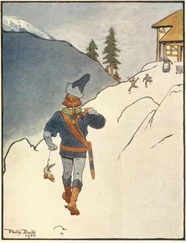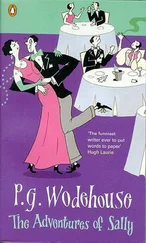Pelham Wodehouse - A Wodehouse Miscellany
Здесь есть возможность читать онлайн «Pelham Wodehouse - A Wodehouse Miscellany» весь текст электронной книги совершенно бесплатно (целиком полную версию без сокращений). В некоторых случаях можно слушать аудио, скачать через торрент в формате fb2 и присутствует краткое содержание. Жанр: Классическая проза, Юмористическая проза, на английском языке. Описание произведения, (предисловие) а так же отзывы посетителей доступны на портале библиотеки ЛибКат.
- Название:A Wodehouse Miscellany
- Автор:
- Жанр:
- Год:неизвестен
- ISBN:нет данных
- Рейтинг книги:3 / 5. Голосов: 1
-
Избранное:Добавить в избранное
- Отзывы:
-
Ваша оценка:
- 60
- 1
- 2
- 3
- 4
- 5
A Wodehouse Miscellany: краткое содержание, описание и аннотация
Предлагаем к чтению аннотацию, описание, краткое содержание или предисловие (зависит от того, что написал сам автор книги «A Wodehouse Miscellany»). Если вы не нашли необходимую информацию о книге — напишите в комментариях, мы постараемся отыскать её.
A Wodehouse Miscellany — читать онлайн бесплатно полную книгу (весь текст) целиком
Ниже представлен текст книги, разбитый по страницам. Система сохранения места последней прочитанной страницы, позволяет с удобством читать онлайн бесплатно книгу «A Wodehouse Miscellany», без необходимости каждый раз заново искать на чём Вы остановились. Поставьте закладку, и сможете в любой момент перейти на страницу, на которой закончили чтение.
Интервал:
Закладка:
"Lady Florence and I are engaged, Jeeves," I said.
"Indeed, sir?"
You know, there was a kind of rummy something about his manner. Perfectly all right and all that, but not what you'd call chirpy. It somehow gave me the impression that he wasn't keen on Florence. Well, of course, it wasn't my business. I supposed that while he had been valeting old Worplesdon she must have trodden on his toes in some way. Florence was a dear girl, and, seen sideways, most awfully good-looking; but if she had a fault it was a tendency to be a bit imperious with the domestic staff.
At this point in the proceedings there was another ring at the front door. Jeeves shimmered out and came back with a telegram. I opened it. It ran:
Return immediately. Extremely urgent. Catch first train. Florence.
"Rum!" I said.
"Sir?"
"Oh, nothing!"
It shows how little I knew Jeeves in those days that I didn't go a bit deeper into the matter with him. Nowadays I would never dream of reading a rummy communication without asking him what he thought of it. And this one was devilish odd. What I mean is, Florence knew I was going back to Easeby the day after to-morrow, anyway; so why the hurry call? Something must have happened, of course; but I couldn't see what on earth it could be.
"Jeeves," I said, "we shall be going down to Easeby this afternoon. Can you manage it?"
"Certainly, sir."
"You can get your packing done and all that?"
"Without any difficulty, sir. Which suit will you wear for the journey?"
"This one."
I had on a rather sprightly young check that morning, to which I was a good deal attached; I fancied it, in fact, more than a little. It was perhaps rather sudden till you got used to it, but, nevertheless, an extremely sound effort, which many lads at the club and elsewhere had admired unrestrainedly.
"Very good, sir."
Again there was that kind of rummy something in his manner. It was the way he said it, don't you know. He didn't like the suit. I pulled myself together to assert myself. Something seemed to tell me that, unless I was jolly careful and nipped this lad in the bud, he would be starting to boss me. He had the aspect of a distinctly resolute blighter.
Well, I wasn't going to have any of that sort of thing, by Jove! I'd seen so many cases of fellows who had become perfect slaves to their valets. I remember poor old Aubrey Fothergill telling me‒with absolute tears in his eyes, poor chap!‒one night at the club, that he had been compelled to give up a favourite pair of brown shoes simply because Meekyn, his man, disapproved of them. You have to keep these fellows in their place, don't you know. You have to work the good old iron-hand-in-the-velvet-glove wheeze. If you give them a what's-its-name, they take a thingummy.
"Don't you like this suit, Jeeves?" I said coldly.
"Oh, yes, sir."
"Well, what don't you like about it?"
"It is a very nice suit, sir."
"Well, what's wrong with it? Out with it, dash it!"
"If I might make the suggestion, sir, a simple brown or blue, with a hint of some quiet twill‒‒"
"What absolute rot!"
"Very good, sir."
"Perfectly blithering, my dear man!"
"As you say, sir."
I felt as if I had stepped on the place where the last stair ought to have been, but wasn't. I felt defiant, if you know what I mean, and there didn't seem anything to defy.
"All right, then," I said.
"Yes, sir."
And then he went away to collect his kit, while I started in again on "Types of Ethical Theory" and took a stab at a chapter headed "Idiopsychological Ethics."
Most of the way down in the train that afternoon, I was wondering what could be up at the other end. I simply couldn't see what could have happened. Easeby wasn't one of those country houses you read about in the society novels, where young girls are lured on to play baccarat and then skinned to the bone of their jewellery, and so on. The house-party I had left had consisted entirely of law-abiding birds like myself.
Besides, my uncle wouldn't have let anything of that kind go on in his house. He was a rather stiff, precise sort of old boy, who liked a quiet life. He was just finishing a history of the family or something, which he had been working on for the last year, and didn't stir much from the library. He was rather a good instance of what they say about its being a good scheme for a fellow to sow his wild oats. I'd been told that in his youth Uncle Willoughby had been a bit of a rounder. You would never have thought it to look at him now.
When I got to the house, Oakshott, the butler, told me that Florence was in her room, watching her maid pack. Apparently there was a dance on at a house about twenty miles away that night, and she was motoring over with some of the Easeby lot and would be away some nights. Oakshott said she had told him to tell her the moment I arrived; so I trickled into the smoking-room and waited, and presently in she came. A glance showed me that she was perturbed, and even peeved. Her eyes had a goggly look, and altogether she appeared considerably pipped. "Darling!" I said, and attempted the good old embrace; but she sidestepped like a bantam weight.
"Don't!"
"What's the matter?"
"Everything's the matter! Bertie, you remember asking me, when you left, to make myself pleasant to your uncle?"
"Yes."
The idea being, of course, that as at that time I was more or less dependent on Uncle Willoughby I couldn't very well marry without his approval. And though I knew he wouldn't have any objection to Florence, having known her father since they were at Oxford together, I hadn't wanted to take any chances; so I had told her to make an effort to fascinate the old boy.
"You told me it would please him particularly if I asked him to read me some of his history of the family."
"Wasn't he pleased?"
"He was delighted. He finished writing the thing yesterday afternoon, and read me nearly all of it last night. I have never had such a shock in my life. The book is an outrage. It is impossible. It is horrible!"
"But, dash it, the family weren't so bad as all that."
"It is not a history of the family at all. Your uncle has written his reminiscences! He calls them 'Recollections of a Long Life'!"
I began to understand. As I say, Uncle Willoughby had been somewhat on the tabasco side as a young man, and it began to look as if he might have turned out something pretty fruity if he had started recollecting his long life.
"If half of what he has written is true," said Florence, "your uncle's youth must have been perfectly appalling. The moment we began to read he plunged straight into a most scandalous story of how he and my father were thrown out of a music-hall in 1887!"
"Why?"
"I decline to tell you why."
It must have been something pretty bad. It took a lot to make them chuck people out of music-halls in 1887.
"Your uncle specifically states that father had drunk a quart and a half of champagne before beginning the evening," she went on. "The book is full of stories like that. There is a dreadful one about Lord Emsworth."
"Lord Emsworth? Not the one we know? Not the one at Blandings?"
A most respectable old Johnnie, don't you know. Doesn't do a thing nowadays but dig in the garden with a spud.
"The very same. That is what makes the book so unspeakable. It is full of stories about people one knows who are the essence of propriety today, but who seem to have behaved, when they were in London in the 'eighties, in a manner that would not have been tolerated in the fo'c'sle of a whaler. Your uncle seems to remember everything disgraceful that happened to anybody when he was in his early twenties. There is a story about Sir Stanley Gervase-Gervase at Rosherville Gardens which is ghastly in its perfection of detail. It seems that Sir Stanley‒but I can't tell you!"
Читать дальшеИнтервал:
Закладка:
Похожие книги на «A Wodehouse Miscellany»
Представляем Вашему вниманию похожие книги на «A Wodehouse Miscellany» списком для выбора. Мы отобрали схожую по названию и смыслу литературу в надежде предоставить читателям больше вариантов отыскать новые, интересные, ещё непрочитанные произведения.
Обсуждение, отзывы о книге «A Wodehouse Miscellany» и просто собственные мнения читателей. Оставьте ваши комментарии, напишите, что Вы думаете о произведении, его смысле или главных героях. Укажите что конкретно понравилось, а что нет, и почему Вы так считаете.


